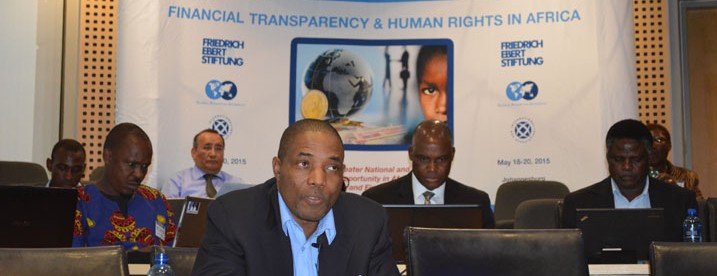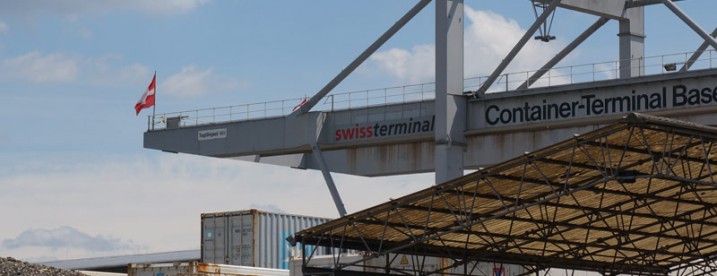
The Most Important Step that Can Be Taken Toward Equitable, Sustainable Development in the Years Ahead Is Legitimate Trade
Plastic buckets from the Czech Republic at $970 each? Brown sugar from Turkey going for $240 per pound? Or weed whackers shipped to Venezuela at $12,300 apiece?
These are all examples of the troubling and growing phenomenon known as trade misinvoicing — the fraudulent over- and under-invoicing of international trade transactions to secretly move money, covering the proceeds of crime, corruption, and tax evasion.
Offshore Financial Centres Can Help Curb Illicit Flows by Exchanging Tax Information and Providing Transparent Beneficial Ownership Information
In its recent op-ed, Jersey Finance provides a defence of the offshore financial centre’s legal code and regulatory framework against charges by “pressure groups” of alleged financial improprieties. The author also promotes Jersey’s financial services to current and potential clients that intend to invest in Africa.
However the article’s logic is flawed. It suggests that since Jersey is an international finance centre with allegedly tough anti-money laundering laws to help prevent wrongdoing, other IFCs are also proper places to facilitate investments in the developing world. One need only search “Swiss leaks” or “Lux leaks” to understand more clearly how taxes are dodged, money laundered, and financial secrets kept around the globe. Secret bank accounts, anonymous corporations, fraudulent foundations, nominee trust accounts and other opaque structures are the calling cards of many IFCs and are utilised by any firm or person who wants to move, hide or launder money.
By Tom Cardamone, July 2, 2015
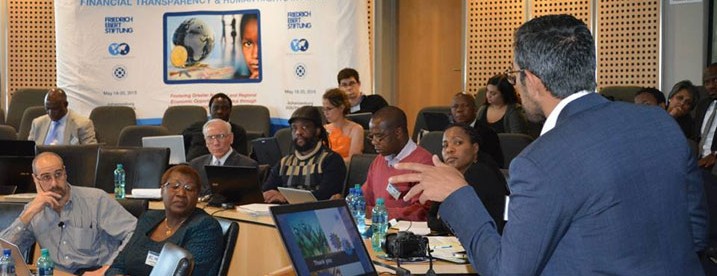
A Quarterly Newsletter on the Work of Global Financial Integrity from April to June 2015
Global Financial Integrity is pleased to present
GFI Engages, a quarterly newsletter created to highlight events at GFI and in the world of illicit financial flows. We look forward to keeping you updated on our research, advocacy, high level engagement, and media presence. The following items represent just a fraction of what GFI has been up to since March, so make sure to check our
website for frequent updates.
Joint Conference in Johannesburg: Financial Transparency and Human Rights in Africa
The Friedrich-Ebert-Stiftung (FES), Global Financial Integrity (GFI), and the International Bar Association’s Human Rights Institute (IBAHRI) partnered to host a three-day conference in Johannesburg, South Africa fromMay 18-20. The conference featured special expert-level discussion on the connection between human rights and illicit financial flows in Africa and the legal, advocacy, and academic channels for leveraging these connections to effect change.
Panelists and keynote speakers were drawn from around Sub-Saharan Africa and across the globe, covering a broad range of topics within the financial transparency-human rights overlap, including natural resources, violent conflicts, long-term development consequences, and the ongoing Sustainable Development Goal (SDG) process.
In a joint letter, GFI President Raymond Baker joined 49 other distinguished individuals in calling on the Angolan government to drop charges against journalist Rafael Marques de Morais. The full letter can be read below or downloaded as a PDF here.
GFI would like to thank Human Rights Watch for organizing the letter.
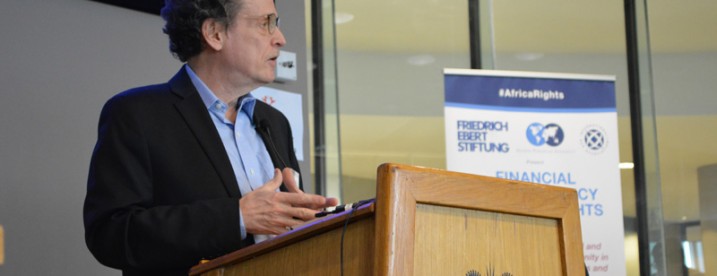
In May 2015, Professor Thomas Pogge delivered the keynote address at a conference, titled “Financial Transparency and Human Rights in Africa: Fostering Greater National and Regional Economic Opportunity in Africa through Human Rights and Financial Transparency,” co-hosted by Global Financial Integrity, the Friedrich-Ebert-Stiftung (FES), and the International Bar Association’s Human Rights Institute (IBAHRI) in Johannesburg, South Africa.
A member of GFI’s Board of Directors, Dr. Pogge is the Director of the Global Justice Program and the Leitner Professor of Philosophy and International Affairs at Yale University.
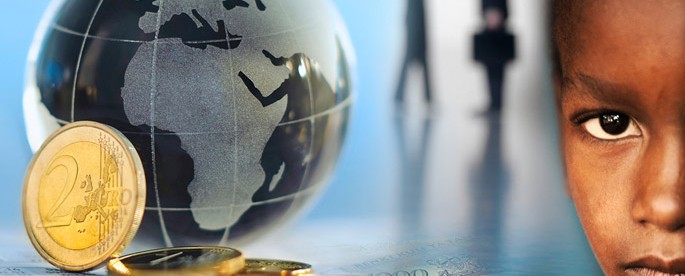
Illicit Financial Flows “Greatly Aggravate Poverty and Oppression in Many Developing Countries”
GFI Estimates Illicit Outflows Drain 5.5% of GDP from Sub-Saharan Africa Annually
JOHANNESBURG, South Africa – International and African experts on human rights and illicit financial flows are convening in Johannesburg, South Africa this week for a multi-day conference on the linkages between financial transparency and human rights in Africa.
Hosted by Global Financial Integrity (GFI)—in partnership with the Friedrich-Ebert-Stiftung (FES) and the International Bar Association’s Human Rights Institute (IBAHRI)—the event builds upon the New Haven Declaration on Human Rights and Financial Integrity (New Haven Declaration), which recognized that “human rights and international financial integrity are intimately linked.”

Les flux financiers illicites « aggravent considérablement la pauvreté et l’oppression dans de nombreux pays en voie de développement.»
GFI estime que les sorties illicites de capitaux représentent 5.5% du PIB annuel en Afrique sub-saharienne.
JOHANNESBURG, Afrique du Sud – Des spécialistes internationaux et africains des droits de l’homme et des flux financiers illicites se réunissent cette semaine à Johannesburg, en Afrique du Sud, pour une conférence de plusieurs jours sur les liens entre la transparence financière et les droits de l’homme en Afrique.
Organisée par Global Financial Integrity (GFI) – en collaboration avec la fondation Friedrich-Ebert-Stiftung (FES) et l’institut des droits de l’homme de l’Association internationale du barreau (IBAHRI) – cet évènement s’appuie sur la Déclaration de New Haven sur les droits de l’homme et l’intégrité financière (Déclaration de New Haven), qui a reconnu que « les droits de l’homme et l’intégrité financière internationale sont intimement liés. »



